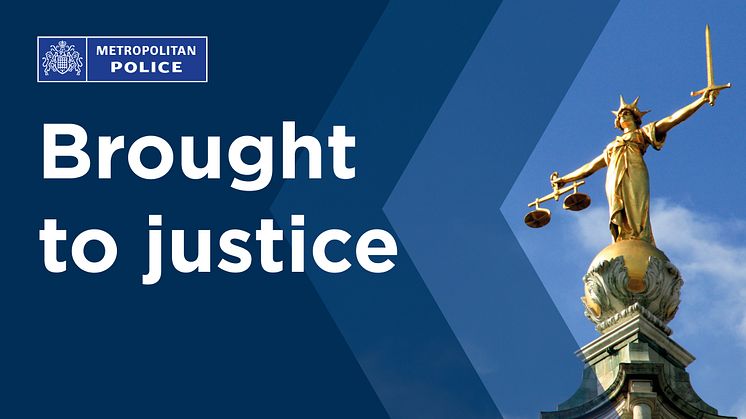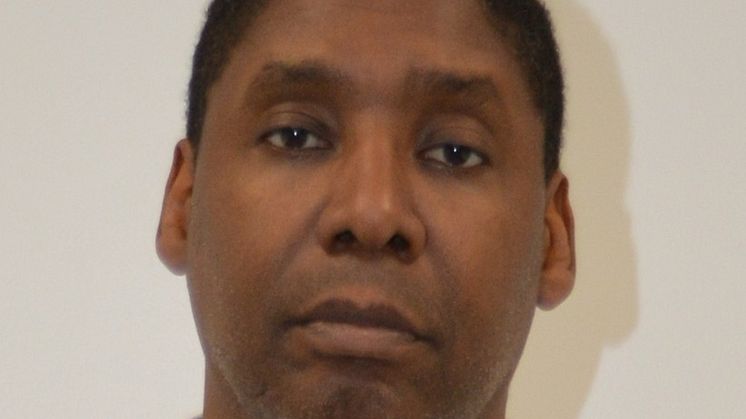
News -
Art dealer jailed for terrorism offence
An art dealer from London has been jailed after an investigation by officers from the Met’s Counter Terrorism Command revealed £140,000 of sales to a suspected financier of the proscribed group Hizballah.
Oghenochuko Ojiri 53 (05.05.72) of west London, was sentenced at the Old Bailey on Friday, 6 June after he admitted eight counts of failing to make a disclosure during the course of business within the regulated sector, contrary to section 21A of the Terrorism Act 2000.
Commander Dominic Murphy, head of the Met’s Counter Terrorism Command, said:
“This prosecution, using specific Terrorism Act legislation, is the first of its kind and should act as a warning to all art dealers that we can, and will, pursue those who knowingly do business with people identified as funders of terrorist groups.
“Oghenochuko Ojiri wilfully obscured the fact he knew he was selling artwork to Nazem Ahmad, someone who has been sanctioned by the UK and US Treasury and described as a funder of the proscribed terrorist group Hizballah.
“Financial investigation is a crucial part of the counter-terrorism effort. A team of specialist investigators, analysts and researchers in the National Terrorist Financial Investigation Unit works all year round to prevent money from reaching the hands of terrorists or being used to fund attacks.”
Ojiri was arrested on 18 April 2023 in Wrexham on the same day the UK Government announced sanctions against Nazem Ahmad, a wealthy art collector, based in Lebanon, suspected of providing funding to Hizballah, a proscribed organisation.
Officers subsequently obtained a warrant to seize a number of artworks belonging to Ahmad held in two UK-based warehouses.
The artwork, including a Picasso and Andy Warhol paintings, were seized on 4 May 2023 and the NTFIU obtained a forfeiture order later the same year. The artwork, valued at almost £1 million, is due to be sold and the funds will be reinvested back into the police, CPS and Home Office.
The Met’s investigation into Ojiri was carried out in partnership with US Homeland Security, which is conducting a wider investigation into alleged money laundering by Ahmad using shell companies.
Officers from the NTFIU analysed a series of invoices for sales of art by Ojiri and identified that eight purchases were completed with names inserted on the invoices that were not Ahmad’s – despite Ojiri knowing the sale was being conducted for him and on his behalf.
The art market became regulated in 2019 under Anti-Money Laundering regulations. This brought the art market in line with other regulated sectors such as banking and solicitors. The regulator is HM Revenue & Customs (HMRC).
People who operate in the art market, like gallery owners, must be registered with the HMRC as an Art Market Participant (AMP), undertake due diligence and report any suspicions of money laundering or terrorist financing.
Detectives from the NTFIU recovered WhatsApp messages on Ojiri’s mobile phone from 31 January 2020, which showed Ojiri discussing the new money laundering regulations with a colleague.
Analysis of messages and web history on Ojiri’s mobile phone also showed that he was aware of the financial sanctions by the US Treasury against Ahmad due to his suspected involvement in being a high-level financier of Hizballah.
In police interview, Ojiri apologised for his actions but denied that money or greed were the motivating factors behind dealing with Ahmed, claiming it was the excitement and kudos of dealing with a ‘name’ in the art collecting world.
Ojiri pleaded guilty to the charges, which relate to a period from October 2020 to December 2021, at Westminster Magistrates’ Court on 9 May.
On Friday, 6 June Ojiri was sentenced to two years and six months' imprisonment.
The prosecution, believed to be the first of its kind, followed an investigation by the NTFIU, alongside the Office of Financial Sanctions Implementation (OFSI) in HM Treasury, HMRC, and the Met’s Art and Antiques Unit.
Bethan David, Head of the CPS Counter Terrorism Division, said: “It is clear that Oghenochuko Ojiri was aware of new money laundering regulations in the art world and that he had knowledge of Nazem Ahmad’s background.
“Ojiri engaged in activity designed to conceal the identity of the true purchaser by changing the details on invoices and storing Mr Ahmad’s name under a different alias in his mobile phone.
“His motivation appears to be financial along with a broader desire to boost his gallery’s reputation within the art market by dealing with such a well-known collector.
“This prosecution is believed to be the first of its kind, and the CPS will not hesitate to bring criminal charges against individuals who flout the law in this way.”
Louise MacDonald, Deputy Director of Economic Crime at HMRC’s Fraud Investigation Service, said:
“This landmark case clearly shows how government and law enforcement is effectively tackling those who may fund terrorism.
“As a money laundering supervisor, we know criminals prey on weaknesses. That’s why we work tirelessly with sectors like the art market to ensure they have the defences in place to stop criminals in their tracks.”
